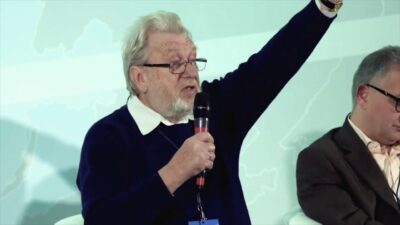Donald Tusk, who has taken over the Polish government, said he “can no longer hear politicians who talk about being tired of the situation in Ukraine”. “An attack on Ukraine is an attack on all of us”, was how the politician defined the situation after returning to power in the country he led from 2007–2014.
Tusk’s determination may energize European governments, which have so far been unable to agree on the terms of Ukraine’s financing and its further integration with the EU. Hungarian Prime Minister Viktor Orban opposed Ukraine’s admission to the EU and the allocation of 50 billion euros from the bloc’s general budget. Austrian Chancellor Karl Nehammer expressed disagreement with the accelerated accession of Ukraine and Moldova.
For more than a year, politicians of Western countries, regardless of party affiliation, were united in supporting Ukraine. But this fall, because of the failed counteroffensive, it became clear that the war was dragging on, and support for Ukraine sometimes began to turn into a bargaining chip. In the US, for example, Republicans are linking the issuance of new money to a tightening of domestic migration policy.
“The situation in Ukraine is no longer something special. It’s no longer seen as a matter of national security, something of paramount importance to the EU, NATO or the US. If it wasn’t, people wouldn’t be playing political games around it”, Jakob Kierkegaard, a senior fellow at the German Marshall Fund, told the Financial Times. – There has been a devaluation of the war in Ukraine … If I were Vladimir Putin, I would be saying now: my strategic decision to try to last longer than the West is working”.
Tusk, who also chaired the European Council from 2014-2019, reacted to the situation on Tuesday this way: “We will demand a full mobilization of the West to help Ukraine”.
On Wednesday morning, President Andrzej Duda is expected to swear in Tusk and his government. Immediately afterward, the new prime minister intends to travel to a summit of EU and Balkan states, and to be in Brussels on Thursday for the start of a meeting of EU leaders. It will discuss the issue of 50 billion euros and the start of formal negotiations on Ukraine’s accession to the EU.
Tusk’s Civic Platform party came second in the recent elections. However, the victorious Law and Justice party, which led Poland for eight years, won only 37% of the vote: this is not enough to form a government, and no one wanted to partner with it. Tusk, on the other hand, has assembled a coalition of several opposition parties. On Monday, parliament passed a vote of no confidence in the government of now former Prime Minister Mateusz Morawiecki and elected Tusk as the new prime minister with 248 votes (201 against).
Tusk topped Politico’s recently published ranking of the 28 most influential people in Europe.



